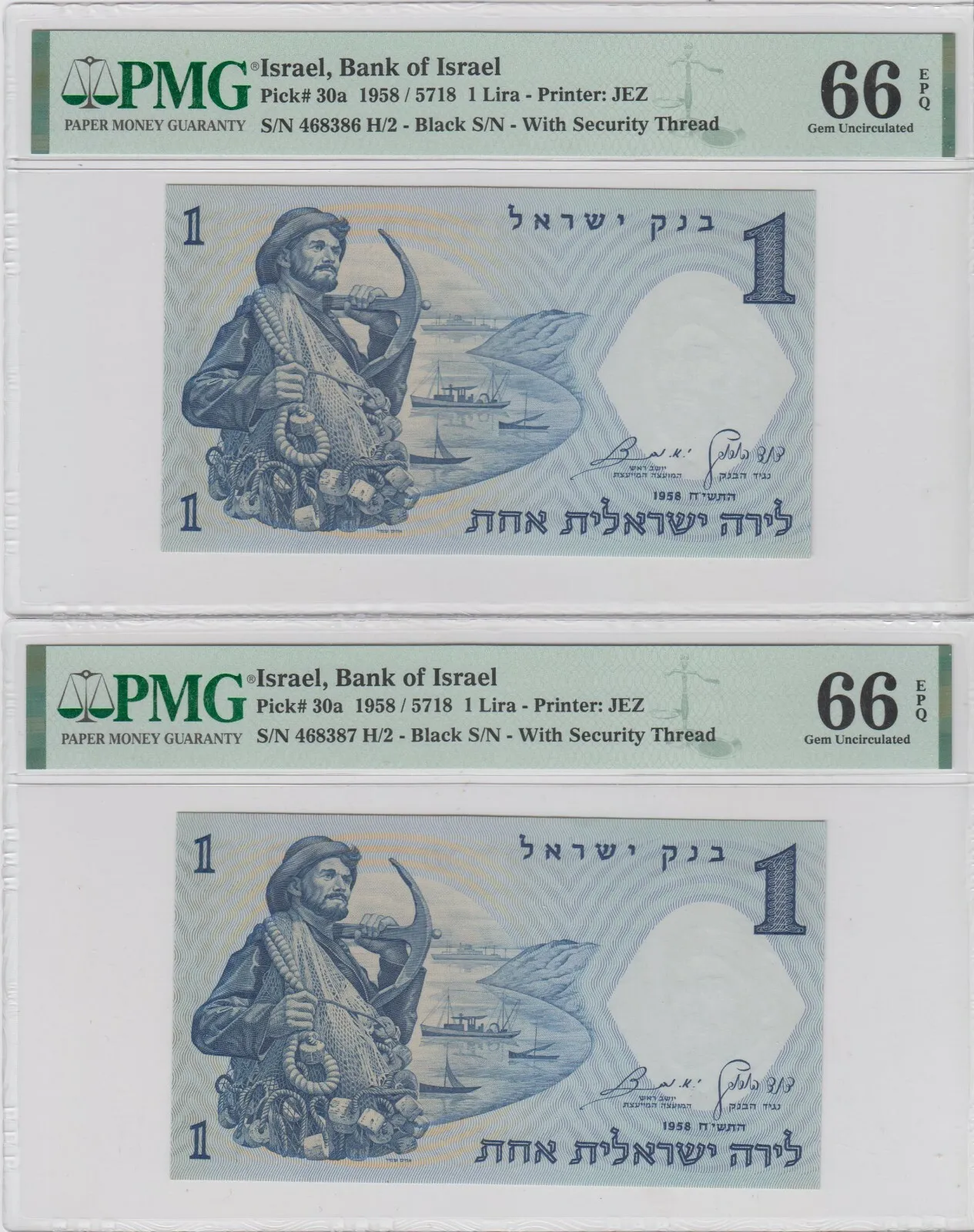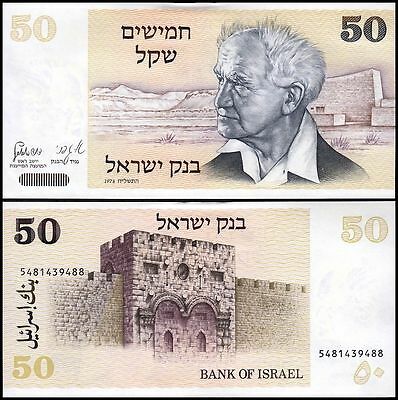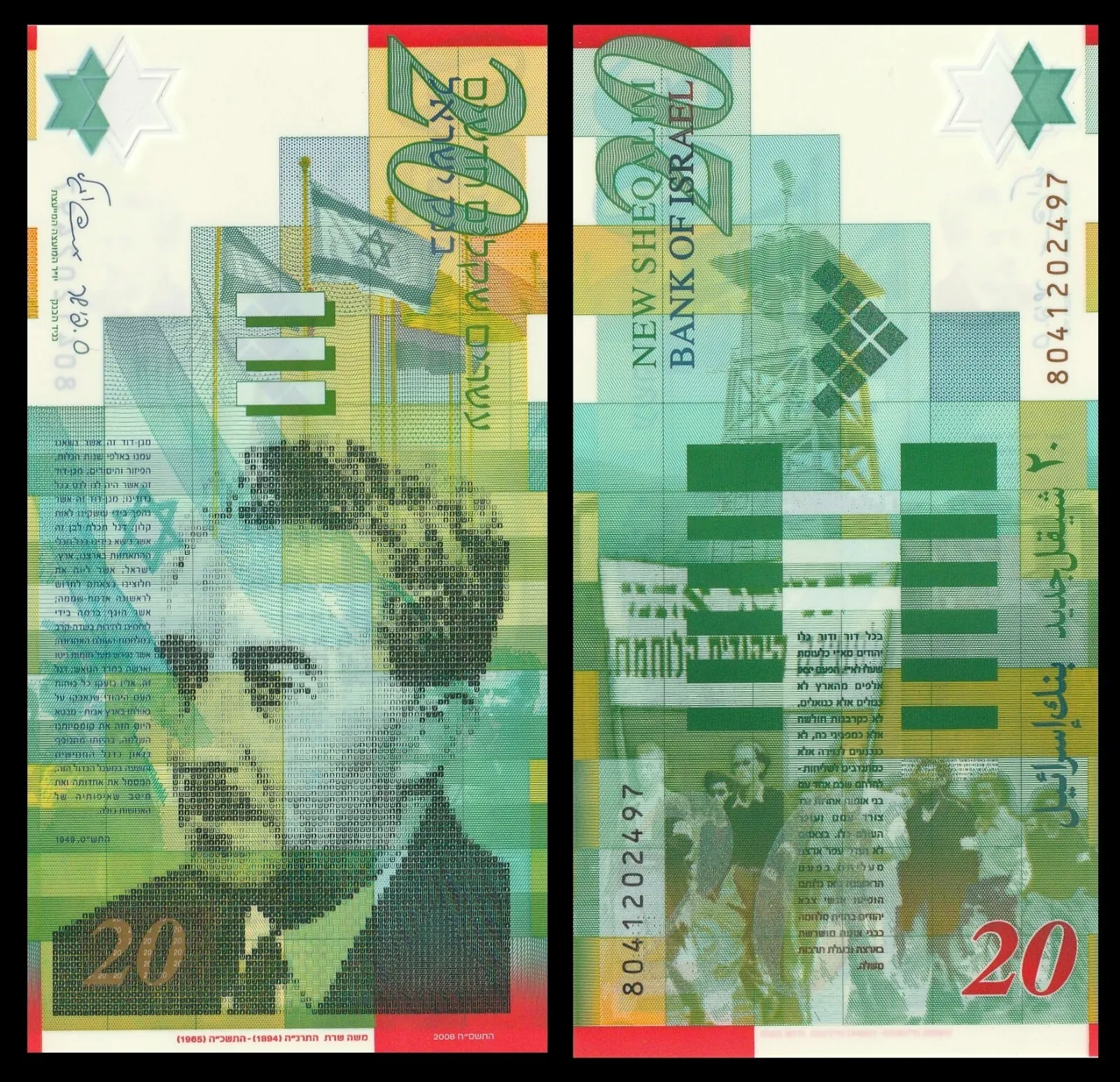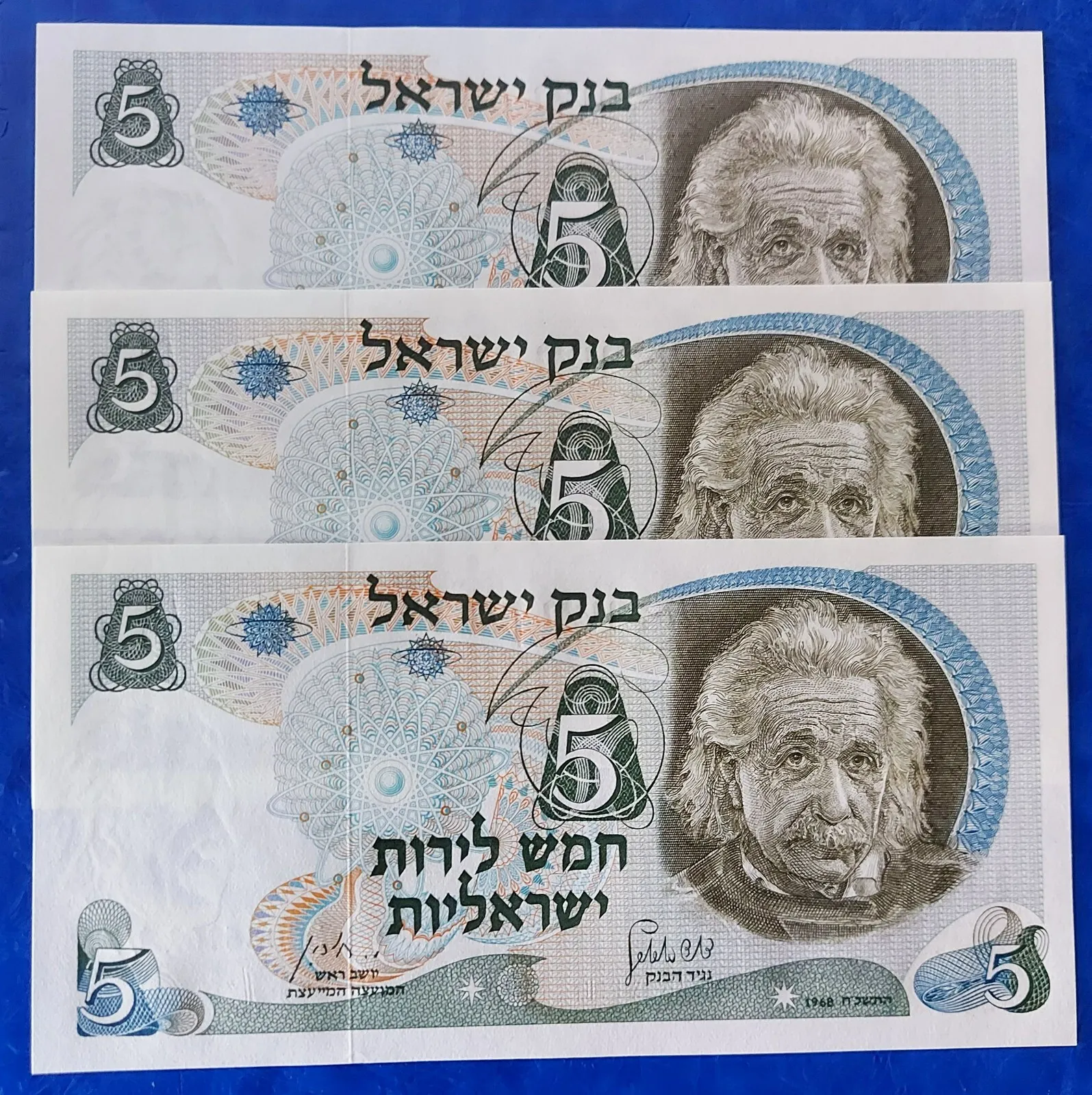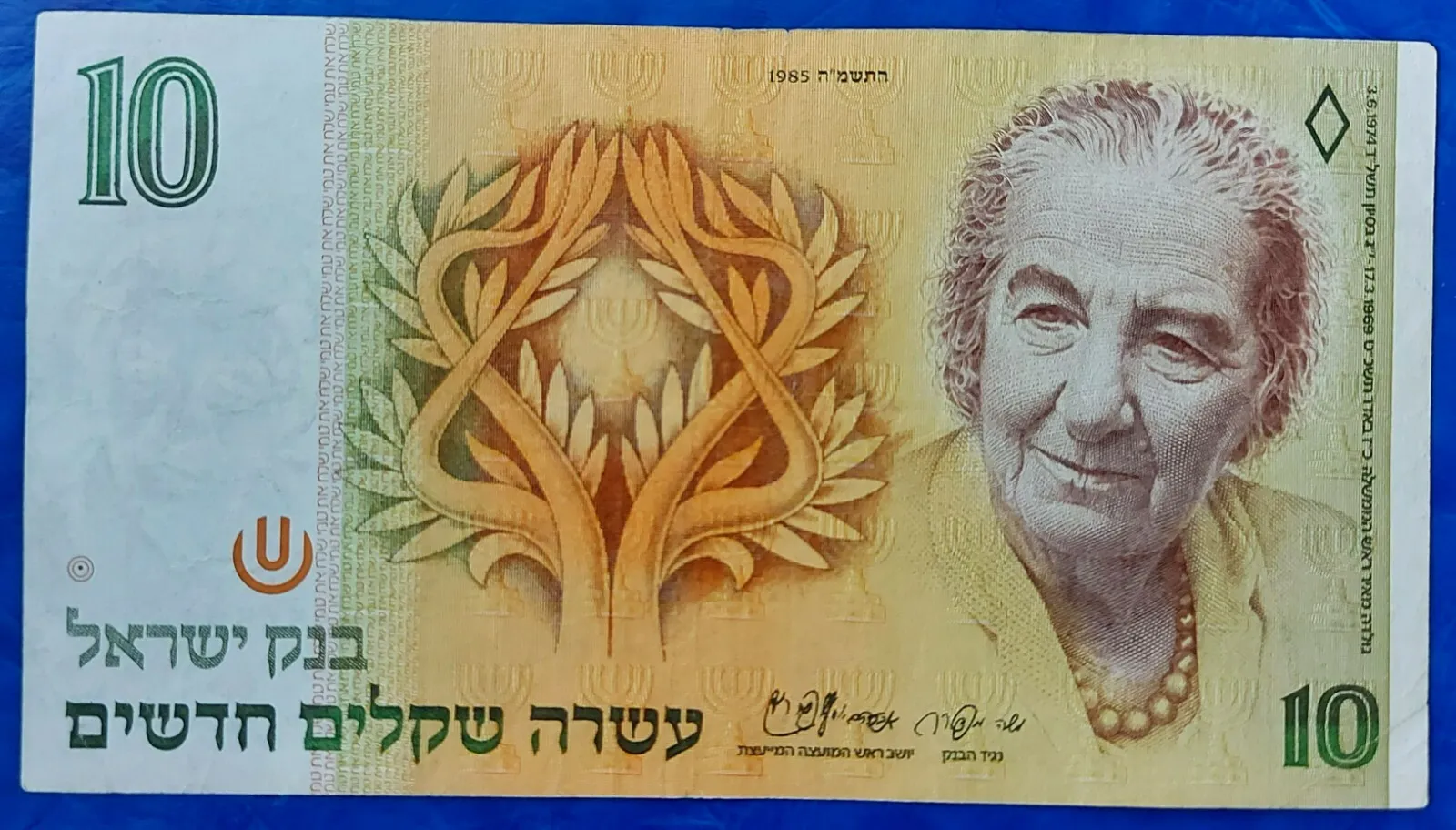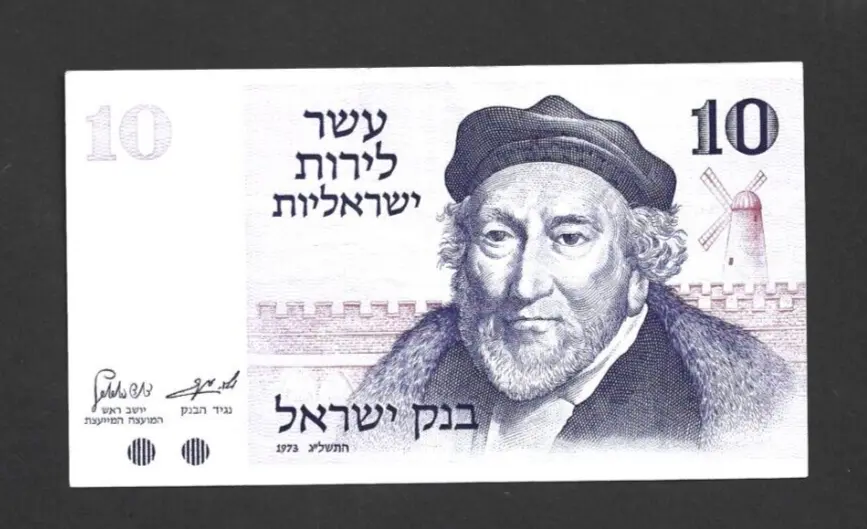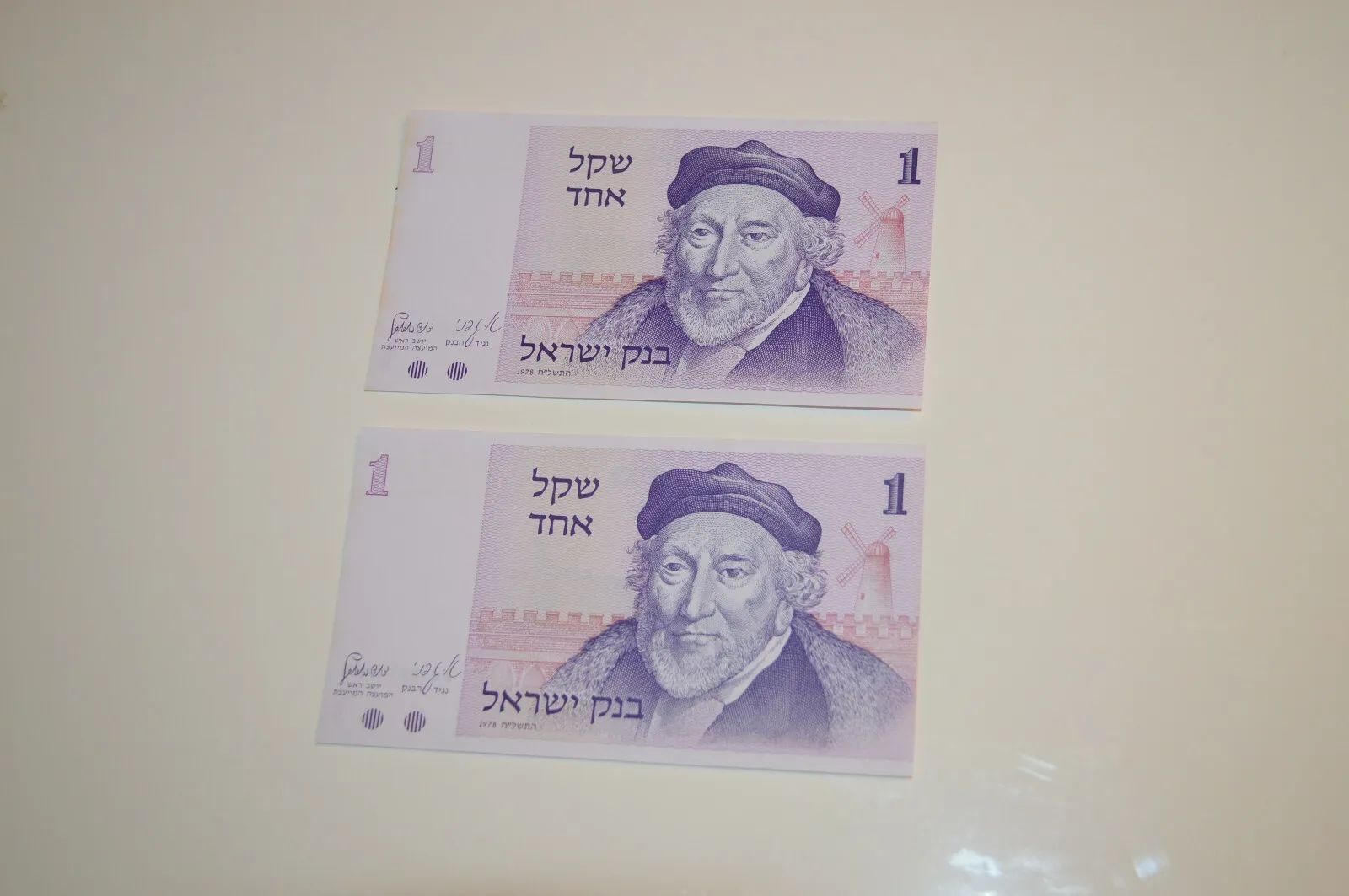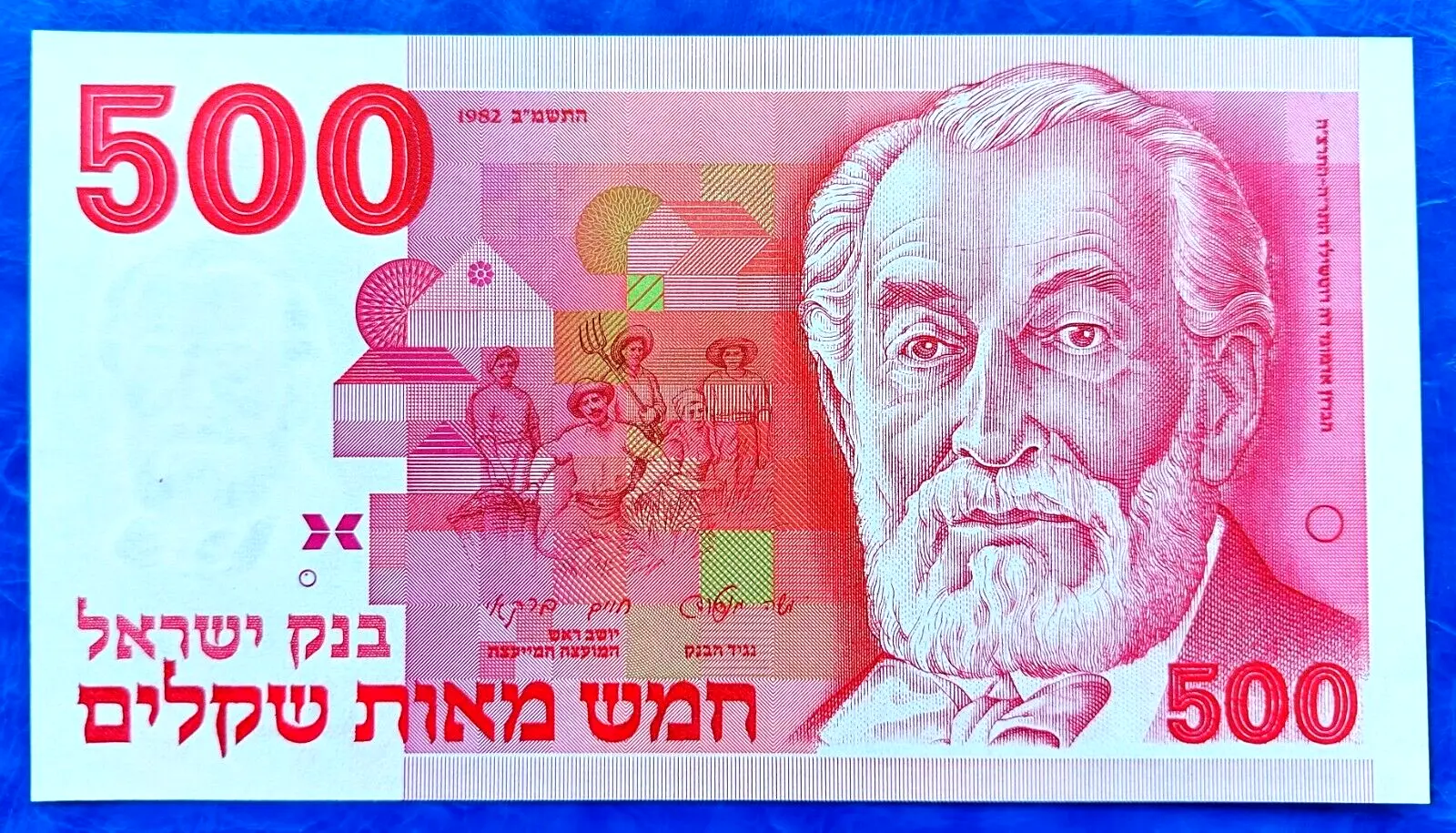-40%
1958 ISRAEL 1 LIRA P30a 2 Consecutive Numbers PMG 66 EPQ Gem UNC
$ 62.83
- Description
- Size Guide
Description
1958 ISRAEL 1 LIRA P30a 2 Consecutive Numbers PMG 66 EPQ Gem UNC1 Lira
Obverse: fisherman
Reverse: floor mosaic from ancient synagogue in Isfiya on Mount Carmel
Dominant color: blue
Dimensions: 135 x 75 mm
Signatures: David Horowitz, Governor Bank of Israel; Yitzhak Nebenzahl, Chairman Advisory Council
Printers (unverified): Royal Joh. Enschedé, Haarlem/Netherlands
A fisherman carrying his gear is the subject of the 1 Lira (Bank of Israel series II) banknote. In contrast to the 1/2 Lira banknote of the same series, the designers sufficed with several photographs of the same person. Apparently they chose the middle image, turned some 30º to the left, as the basis for the figure that appears on the banknote. The photo session was held in Michmoret on the Mediterranean coast (not in Eilat as commonly believed). The only places where mountains (almost) reach the shore in Israel are Haifa (Cape Carmel), to the south of Eilat, at several spots around the Sea of Galilee, and at Rosh Hanikra in the far north. The small fishing boats in the foreground would fit well into a Sea of Galilee scene, but the ocean-going passenger vessel in the background dispels that possibility. Haifa is out of contention too, as the area around Cape Carmel was already heavily urbanized in the 1950s when the banknote was designed. It is therefore understood that the designers had no specific geographical location in mind when drawing the background for the obverse of the 1 Lira banknote.
The exact location of the image on the reverse is well known, though. In 1930, by sheer chance, a small fragment of an ancient mosaic floor was discovered in a street in the village of Isfiya on Mount Carmel. In 1933 further excavations were conducted, exposing more of the same mosaic, which turned out to be part of the floor of a synagogue built in the 6th century AD. The designers of the banknote completed the image, which reads "Shalom al Yisrael" (Peace to Israel).
Combine
shipping
